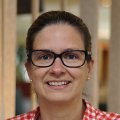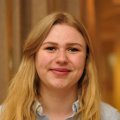
UM – Maastricht University
cBITE (Department of Cell Biology-Inspired Tissue Engineering) operates within the MERLN-Institute for Technology-Inspired Regenerative Medicine newly established in 2015. This institute operates at the interface between biology and engineering for the purpose of regenerating diseased or damaged tissues. The institute has an international reputation for technological innovation and for translating research findings into clinical solutions for patients. The institute consists of 100+ scientists working in state-of-the-art facilities that were rebuilt and furbished with new equipment approximately four years ago. The scientists within the MERLN Institute share laboratory and office facilities. Their laboratories are equipped with state-of-the-art equipment for cell culture, molecular biology, biochemistry, chemical synthesis, materials characterization, light microscopy (including live cell imaging), microscopy-based high-throughput screening, biofabrication (including 8 different 3D printers with the latest available technology), microfabrication (including a cleanroom), and microfluidic (organ/disease on) chips. This supports cBITE in their regenerative medicine approach using (3D) cell culture devices, molecular biology and in vivo translation.
Situated at Maastricht University, MERLN benefits from close collaboration with the academic hospital and the Faculty of Health, Medicine and Life Sciences. MERLN has established close collaboration with numerous clinical groups at Maastricht University Medical Center as well as with the Maastricht MultiModal Imaging Institute M4I, running top-notch EM (SEM, TEM) and mass-spectrometry imaging equipment (www.maastrichtuniversity.nl/research/institutes/m4i/m4i-research) and Institute of Data Sciences (www.maastrichtuniversity.nl/research/institute-data-science). UM also maintains animal facilities that can accommodate small, medium and large animals. The facilities also have support for animal care and logistics.
In terms of research emphasis, our group predominantly focus on the field of musculoskeletal, employing different strategies of tissue engineering (i.e. gene therapy, cell therapy, scaffold-based therapy) towards a variety of population of patients (i.e. non-union, polytrauma, osteoporosis, osteoarthritis). Among which, one of our leading research is the development of microRNAs as biomarkers as a non-invasive diagnostic tool enabling early detection of fracture risk in osteoporotic patients for better clinical management and treatment plan. Furthermore, we have vast expertise in in vitro and in vivo Bone Tissue Engineering and the translational aspect of advanced bone regeneration therapy. Furthermore, we have performed all preclinical studies on cmRNA BMP2 in bone regeneration and successfully published them. Such know-how in cmRNA, developing miRNA as biomarkers, bone engineering knowledge both in vitro and in vivo as well as the relatively easy accessibility of our department to clinical samples make us the perfect partner in this proposal to provide relevant clinical and laboratory data required for this project.
Main task in the project
- Testing cmRNAs in vitro with cell lines and primary human mesenchymal stromal cells concerning dose response and protein production: UM has access to the human primary mesenchymal stem cells and experience in transfecting those cells as well as all the read outs (ELISA, MTT, LDH, PCR, Annexin etc.).
- Testing cmRNAs in vitro in 3D cell culture (scaffold and 3D printed): UM has experience and the possibilities for 3D cell cultures and the read-outs
- Determining in vitro functional osteogenic differentiation: UM has access to the cells and all parameters will be determined (PCR, (immune)histology, µCT etc.)
- Performing ectopic model for osteogenesis in mice: UM has experience with the model and with all the parameters to be determined (PCR, (immune)histology, calcification, ALP activity etc.). Of note, in vivo µCT for kinetic measurements is present and an established technique in the department
- Testing samples from other partners for osteogenesis. UM possesses all relevant techniques and equipments to perform this task (PCR, (immune)histology, calcification, ALP, µCT etc.)
- Performing proof-of-concept model in osteoporotic model. UM has experience with the model and with all the parameters to be measured including in vivo µCT.

Room C3.577
Universiteitssingel 40
6229 ER Maastricht
The Netherlands
Universiteitssingel 40
6229 ER Maastricht
The Netherlands






